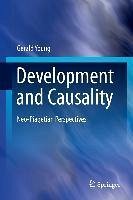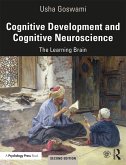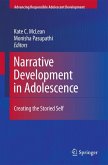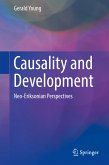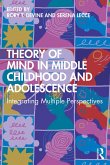Neo-Piagetian Perspectives
Gerald Young
Over the years, Jean Piaget's revolutionary study of infant and child development has inspired much discussion and debate, evolving through the work of his followers and critics. Development and Causality continues in this tradition, bringing new depth to the theoretical base, integrating Piagetian and Freudian/Eriksonian models as well as presenting far-reaching original theory. This comprehensive synthesis of the field concentrates on core areas such as language acquisition, self development, social cognition, personality development, attachment, narrative development, and emotional development, and is written so readers at both basic and advanced levels of familiarity may benefit. Dozens of tables, graphs, and other visual materials aid readers in comprehension; and the book:
- Reviews Piaget's original model as the starting point for current theory.
- Introduces the author's 25-step model of LIFESPAN cognitive development, and compares IT TO Case's and Fischer's models of cognitive socio-affective correspondence.
- Extends current theory in terms of self development, cognitive perception/misperception of the other, self-regulation, theory of mind, and multiple intelligences.
- Focuses in detail on socio-affective development: personality, emotions, attachment.
- Examines causality mechanisms in depth, from hemispheric specialization to complex adaptive systems.
- Speculates on evolutionary forces underlying developmental stages.
Development and Causality is a bedrock reference for researchers and students in child and developmental psychology, and lends itself to practical applications for clinicians.
Dieser Download kann aus rechtlichen Gründen nur mit Rechnungsadresse in A, B, BG, CY, CZ, D, DK, EW, E, FIN, F, GR, HR, H, IRL, I, LT, L, LR, M, NL, PL, P, R, S, SLO, SK ausgeliefert werden.
Hinweis: Dieser Artikel kann nur an eine deutsche Lieferadresse ausgeliefert werden.
"Gerald Young, who, in his magnum opus Development and Causality: Neo-Piagetian Perspectives, has presented a detailed, five-stage theory of cognitive development, with five substages in each stage. ... Each chapter has an introduction that explains what will be covered. ... to those interested in the current state of neo-Piagetian theory and, more specifically, in the work of Gerald Young. ... Development and Causality: Neo-Piagetian Perspectives is still a remarkable book ... ." (Stephen A. Truhon, PsycCRITIQUES, Vol. 57 (15), April, 2012)
"Dr. Young advances stage and development theories in an age of piecemeal traits and symptoms. Only our most brilliant minds have been able to observe, research and theorized about the complexities of development. I enjoyed reading something with depth for a change. Dr. Young's book does an excellent job of reviewing our best theories of life development, the scientific literature and then brings us to a new level of the understanding of human stages of growth with his advancements. I highly recommend this book to anyone who teaches personality theory, developmental psychology, or who plans on doing research in the area of human development. It is written clear enough for the very bright layperson to understand despite it's challenge." (Robert M. Gordon, Ph.D., January, 2012)

